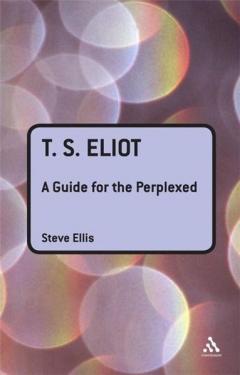This is a concise and clear guide to the complexities of T. S. Eliot's poetry, with easy to follow structure and chapters on Eliot's major texts, all in chronological order.
T. S. Eliot is one of the most celebrated twentieth-century poets and one whose work is practically synonymous with perplexity.
Eliot is perceived as extremely challenging due to the multi-lingual references and fragmentation we find in his poetry and his recurring literary allusions to writers including Dante, Shakespeare; Marvell, Baudelaire and Conrad. There is an additional difficulty for today's readers that Eliot probably didn't envisage: the widespread unfamiliarity with the Christian belief and culture that his work becomes increasingly steeped in. Steve Ellis introduces Eliot's work by using his extensive prose writings to illuminate the poetry.
As a major critic, as well as poet, Eliot was highly conscious of the challenges his poetry set, of its relation and difference to the work of previous poets, and of the ways in which the activity of reading was problematised by his work, so by taking his prose as a starting point helps to clarify his poetic writing. The guide also offers an overview of key critical debates concerning Eliot's work. "Continuum's Guides for the Perplexed" are clear, concise and accessible introductions to thinkers, writers and subjects that students and readers can find especially challenging - or indeed downright bewildering.
Concentrating specifically on what it is that makes the subject difficult to grasp, these books explain and explore key themes and ideas, guiding the reader towards a thorough understanding of demanding material.

